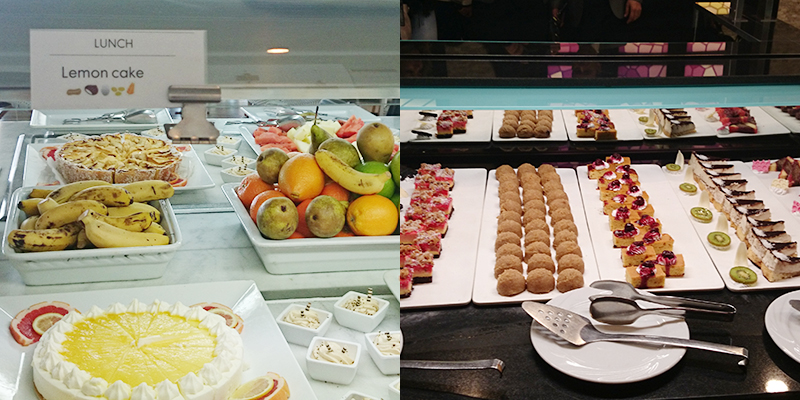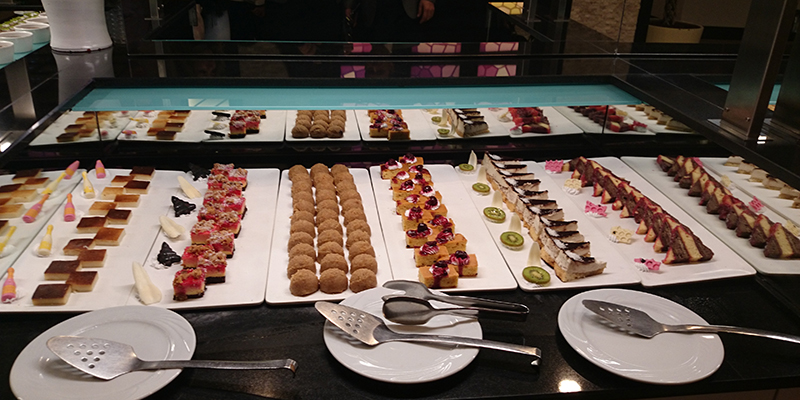New study on sustainable food practices in tourism
February 08, 2016
Contracted by Futouris e.V. and in collaboration with FH Wien and Kondeor, Dagmar Lund-Durlacher (Project Leader) and Hannes Antonschmidt from the Department of Tourism and Service Management have released the first results of an international study on sustainable food practices in tourism. Based on a multi-method research approach consisting of a quantitative consumer survey, field visits, qualitative interviews with hotel and cruise ship representatives and systematic, checklist-based assessments of best practices, the findings and recommendations will be compiled into a hotel guidelines manual which will be distributed by the German tour operators around the world.
Since last October, Lund-Durlacher and Antonschmidt have focused their case studies on two of the most popular destinations for German tourists: the Canary Islands in Spain and Antalya, Turkey.
Their analysis looked at sustainable food practices in hotels and such factors as where they purchased their food, if it was regionally sourced, healthy, fair trade, or organic. While fair trade and organic products have an increasing importance in mainland Europe, their results showed that in the Canaries and Turkey, they are a non-issue, and the majority of hotel representatives were unfamiliar with the concept. Sourcing organic products was also not high on the list of priorities, with cost being the main driver in deciding where to buy food products.
The two destinations took very different approaches to regional purchases, depending on their location. Because food grown locally on the Canary Islands is quite expensive, it is much cheaper to import food products from other countries. Many farmers can’t afford to operate on the islands due to international competition with cheap imports, thus facilitating the circle of low availability of local products at high prices.
The situation in Turkey is quite the opposite, as the country is an agricultural powerhouse. There the tendency was to purchase local and seasonal products which are cheaper than imported. Organic products are offered in a small amount of hotels, but the higher cost and lack of a dependable Turkish certification for organic goods is a barrier. In both regions, the economic agricultural situation greatly informs purchasing, and in turn, how sustainably the hotels operate.
The report offers a number of suggestions to increase food sustainability in both the case studies and at other tourist destinations around the world. Initiatives such as promoting typical local cuisine and locally sourced ingredients in the buffet and on the menu (e.g. ‘Canary Islands tapas’, or ‘Canary Islands-themed evening’), hosting food festivals to stimulate interest, and raising awareness about supporting local farmers and the local economy are suggested ways to improve local product usage in regions with limited agricultural activity, and therefore stimulate production.
They also investigated the ways food waste is created, and ways to minimize it. The type of accommodation package greatly affected the way food was ordered and stored. For example, the all-inclusive resorts which are typical for Turkey require a much higher volume of food to be available at all times as opposed to full or half pension hotels with set meal hours. As the tendency in Turkey is to order a lot of food based on projected guest numbers early in the season, they require more storage facilities and refrigeration facilities which in turn contribute to CO2 production.
Food waste also varied in the case studies based on legislation. As the Canary Islands are part of the EU, they have to follow the regulations stating that all uneaten food on a buffet must be thrown out if not consumed during the service it was cooked for. In Turkey, buffet food may be reused provided it follows a number of health and safety guidelines, thus reducing the amount of waste. Cultural differences in guests were also found to be a factor in food waste – Germans as well as some other Europeans tended to leave less uneaten food on their plates than tourists from other regions. Awareness building for consumers not to waste food is also a major issue they suggest should be tackled in the coming years.
As part of the ongoing study, the researchers sent out customer surveys to package tour guests through major operators such as TUI, Thomas Cook and Aida cruises. The response was excellent, with over 8000 completed surveys being returned. The next step is to process this data, and present the results of the full analysis in March. A one-day summit prior to the ITB 2016 in Berlin will be held to present the findings with the major German and Austrian tour operators in attendance, with a discussion of the developed ideas and suggestions. The tour operators have committed themselves to implement sustainable food projects in locations over the next two years based on the results of this study.

Which buffet is more sustainable? The study found that individual portions lead to less food waste.





